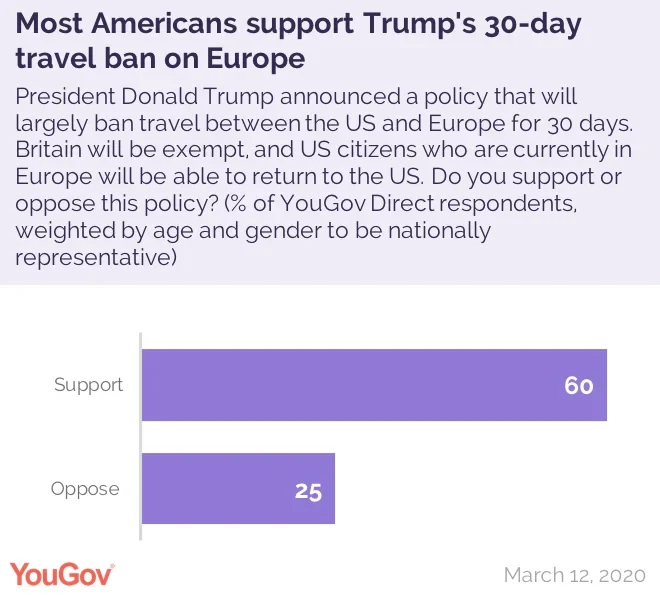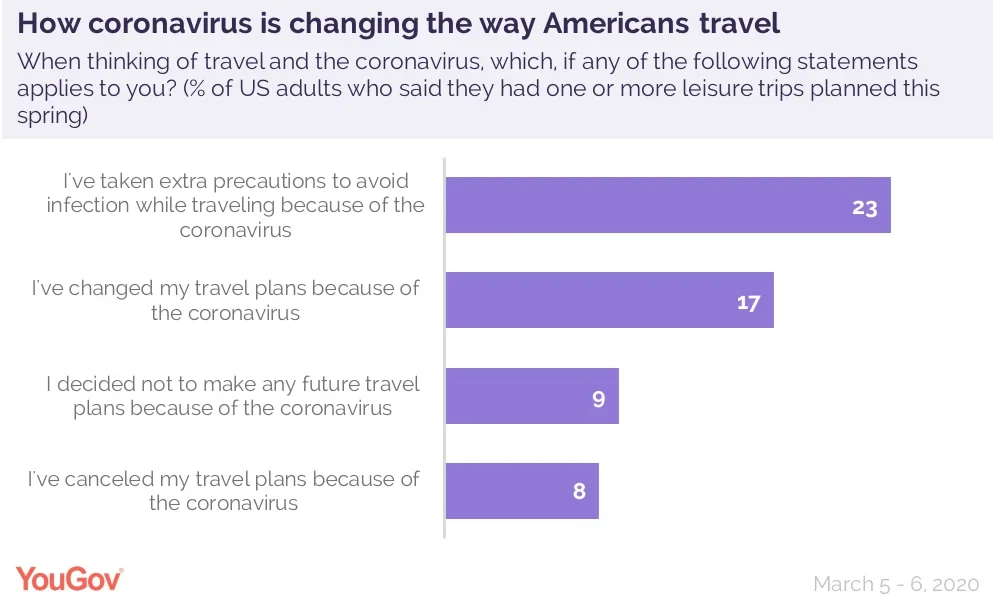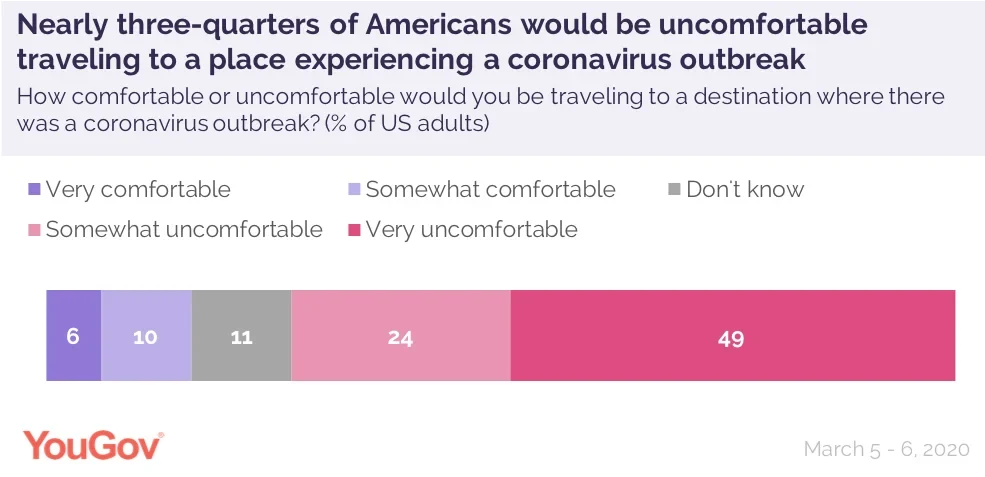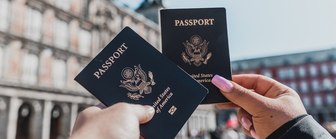Among the tactics used to fight the spread of the COVID-19 outbreak is travel restrictions.
Italy closed down last week and this week President Donald Trump announced that the United States would ban travel to and from Europe (with some exceptions) for the next 30 days.
How do Americans feel about the European ban?

Six in 10 support this new policy, according to a March 12 survey of more than 1,300 respondents on YouGov Direct. One-quarter are opposed to the travel ban.
The survey showed that men (30%) are more likely than women (21%) to say they oppose the 30-day travel ban.
Even prior to this announcement, many Americans said they had changed aspects of their lifestyle and enacted precautions to protect themselves against the infection.
Now, some may be wondering if it’s time to cancel or change their travel plans.
A survey conducted early in March from YouGov finds that 45 percent of US adults said they had at least one trip planned for spring -- but many of these people also say that they’ve had to cancel or change their travel plans because of the coronavirus.
Among those who indicated they had leisure travel scheduled this spring, 8 percent say they have canceled a trip because of the COVID-19 outbreak. Meanwhile, 17 percent say they’ve changed or modified their travel plans because of coronavirus concerns, while about one-quarter (23%) say they’ve taken extra precautions to avoid infection while traveling. One in 11 (9%) say they’ve hit pause on making any more travel plans for the time being.

While there are no warnings against traveling throughout many parts of the world, the Centers for Disease Control is recommending that travelers avoid visiting Italy, Iran, China, and South Korea.
Would Americans avoid visiting places experiencing a coronavirus outbreak?
A plurality (42%) of people with travel plans say that if there was a coronavirus outbreak at the destination(s) they plan to visit, they would cancel the trip altogether. Just over one-third (35%) say they would still go on the trip, but they would take precautions to avoid infection.
Baby Boomers (50%) with travel plans are more likely than Gen X’ers (38%) and Millennials (38%) with travel plans to say they would cancel their trip if they found out about a coronavirus outbreak in their destination.
Among all US adults, a majority (73%) say they would be uncomfortable traveling to a destination where there was a COVID-19 outbreak. Just 6 percent say they would be very comfortable traveling to a place experiencing an outbreak, while one in 10 would be somewhat comfortable doing so.

Those who already have travel plans are more likely to say they would be comfortable (24%) traveling to a place where there was a coronavirus outbreak. But within this group of those who have spring travel plans, far more people (71%) still say they would be uncomfortable.
As far as those who haven’t canceled their trips - what kinds of vacations are they taking?
More than one-third (35%) of those who have travel plans say they are planning a family trip to see relatives. About one-quarter are taking a road trip, while 18 percent are planning a beach vacation and 15 percent have plans to go adventuring in the city.
And although there have been high-profile cases of coronavirus on cruise ships recently, that doesn’t mean Americans are avoiding them. Six percent of US adults with travel plans say they anticipate going on a cruise this spring.
See the full survey results and sign up to be a part of the YouGov panel and learn more about YouGov Direct.
Related: This is the primary reason Americans like to travel solo
Methodology: Data on “President Donald Trump announced a policy that will largely ban travel between the US and Europe for 30 days. Britain will be exempt, and US citizens who are currently in Europe will be able to return to the US. Do you support or oppose this policy?” comes from 1,331 YouGov Direct panelists and was weighted based on age and gender to best represent the US population. All other data comes from a YouGov RealTime survey where the total unweighted sample size was 1,124 US adults. The figures have been weighted and are representative of all US adults (ages 18+). Interviews were conducted online between March 5 - 6, 2020.
Image: Getty












